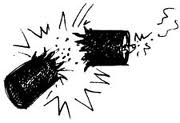An Installment in the Saga of DRAWER NO MORE!
>> View all posts in this series.
As summer prepares its steamy descent on the northern hemisphere, I find I owe my friends an update. You may have noticed that publication of my novel, Our Orbit, which I was drumrolling back in February, has been delayed by several months.
First, there were setbacks with the cover art. Plan A called for a commissioned painting to show a scene from early in the story where the foster family watches a meteor shower on a summer night. That proved harder to arrange than I had imagined. It takes a lot of detail to explain the ambiance of a scene—more detail than even appears in the novel itself!
 I soon resorted to Plan B, which called for a simple backdrop of vintage calico with text in hand-lettered calligraphy. But there are a lot of options in fabric, and calligraphers must be recruited and schooled in the assignment. (Or not, as it turned out.) So Plan B also took more time than I’d budgeted.
I soon resorted to Plan B, which called for a simple backdrop of vintage calico with text in hand-lettered calligraphy. But there are a lot of options in fabric, and calligraphers must be recruited and schooled in the assignment. (Or not, as it turned out.) So Plan B also took more time than I’d budgeted.
Eventually, the cover got sorted out. I’m very happy with it.
Next came the editing issues. Our Orbit contains a good deal of dialect, namely, Appalachian English, also known as hill-country twang. The first editor I consulted found this troubling. True, words like ain’t and oncet may be considered incorrect, but try telling that to my characters! Concerned that new errors had entered my manuscript in the process of cleaning up the grammar, I turned to a second editor—this time, one with experience in the region where my story takes place.
Those complications set the schedule back a few more weeks.
But finally, my text was edited and proofed. The book was fully designed from cover to margins to page numbers. Everything looked terrific! Then, on the eve of clicking “Publish” at CreateSpace, I phoned my publishing consultant: a knowledgeable freelancer who advised me on my previous book. I wanted to make sure she’d be ready to assist again this time.
Alas—! Urgent family matters were calling her away from the office for the next three weeks.

What shall I do?
A more confident person than myself would no doubt shrug and go it alone. I tend to be nervous, however. A wee bit hyper-emotional. As I recalled a number of last-minute glitches in the formatting of my earlier book, I saw a nightmare waiting to happen. What if KDP didn’t like my conversion, and I had nowhere to turn for help? I decided I’d rather tolerate one last delay and wait till my consultant was back on the job to help me publish and promote Our Orbit.
That’s when she dropped a bomb on my comfort zone.
“If you’re going to wait a few weeks, anyway,” my consultant said, “you might as well use the time to apply to literary agents. Your type of book still tends to do better with a traditional publisher, rather than as a DIY.”
This flipped me around 180 degrees. I had done the agent-search before. I devoted months to that time-consuming process with each of the three novels I’ve written. My first novel was too experimental—the main characters were inanimate objects. Agents nibbled, but none bit. My second, based on the Kosovo conflict, was too tragic. Only the likes of Andre Dubus III (House of Sand and Fog) or Hubert Selby Jr. (Requiem for a Dream) are permitted to pen such things in our “happy” postmodern era.
By the time I finished my third novel, I had learned many lessons: nothing too outlandish or heart-wrenching! So Our Orbit should have been just right. Sadly, even after several complete revisions, my text was too long. I spent a full year querying agents, and most seemed to agree. It was too long by a substantial, and oddly specific, amount: 35K words.
Most of these agents were passing judgment without requesting a sample. Not even a 5-pager to check on my style! Eventually, I figured out the unstated backstory: my novel was not too long for potential readers, at least some of whom pride themselves on soldiering through War and Peace or Memories of Things Past. No, it was only too long for standard publishers’ formulae for marketing a novel by an unproven author. They prefer no more than 90K for a debut.
More of a novella.
I could list examples of longer books by unknown people, such as the wildly popular The Story of Edgar Sawtelle by David Wroblewski. (Also, coincidentally, an acceptable tragedy!) The system seemed rigged against me, but how could I appeal for an exception to the formulae, if no agent would take me on?
I think you get the idea that the suggestion of going back to the drawing board to query agents all over again was not what I wanted to hear. In fact, the prospect of never appealing to agents again had become the most delightful aspect of self-publishing! So it was a testament of respect for my consultant when, after a few days of peeving and moping, I bit down on my knucklebone and sent out a group of query letters to literary agents.
Other than my pride, I figured, it couldn’t really hurt.
Because, regardless of their kindly protests to the contrary, I find myself forced to take agents’ rejections very personally on behalf of my book. They say things like, “Your writing is lovely”—but, obviously, not lovely enough. “Your characters are intriguing,” but what difference does that make if readers don’t meet them? “Your story deserves to be told,” so why won’t anyone help me get it out there?
Fellow writers, have you heard all this before? How do you manage not to take it personally? And how do you keep from feeling that your cherished book just isn’t worth reading, after all?
The upshot is that Our Orbit will be delayed in going to press by another few weeks, minimum, while those rejections roll in. The hard part? Turning back to this drawing board has sapped my enthusiasm for self-publishing. I will no doubt wind up launching Our Orbit on my own, in the end, but where will I get the energy to promote it, now that I’ve admitted to myself I would really rather have a traditional publisher and an agent to help me along?
Like the rest of us mere mortals, I’m waiting to see what the future may bring…


